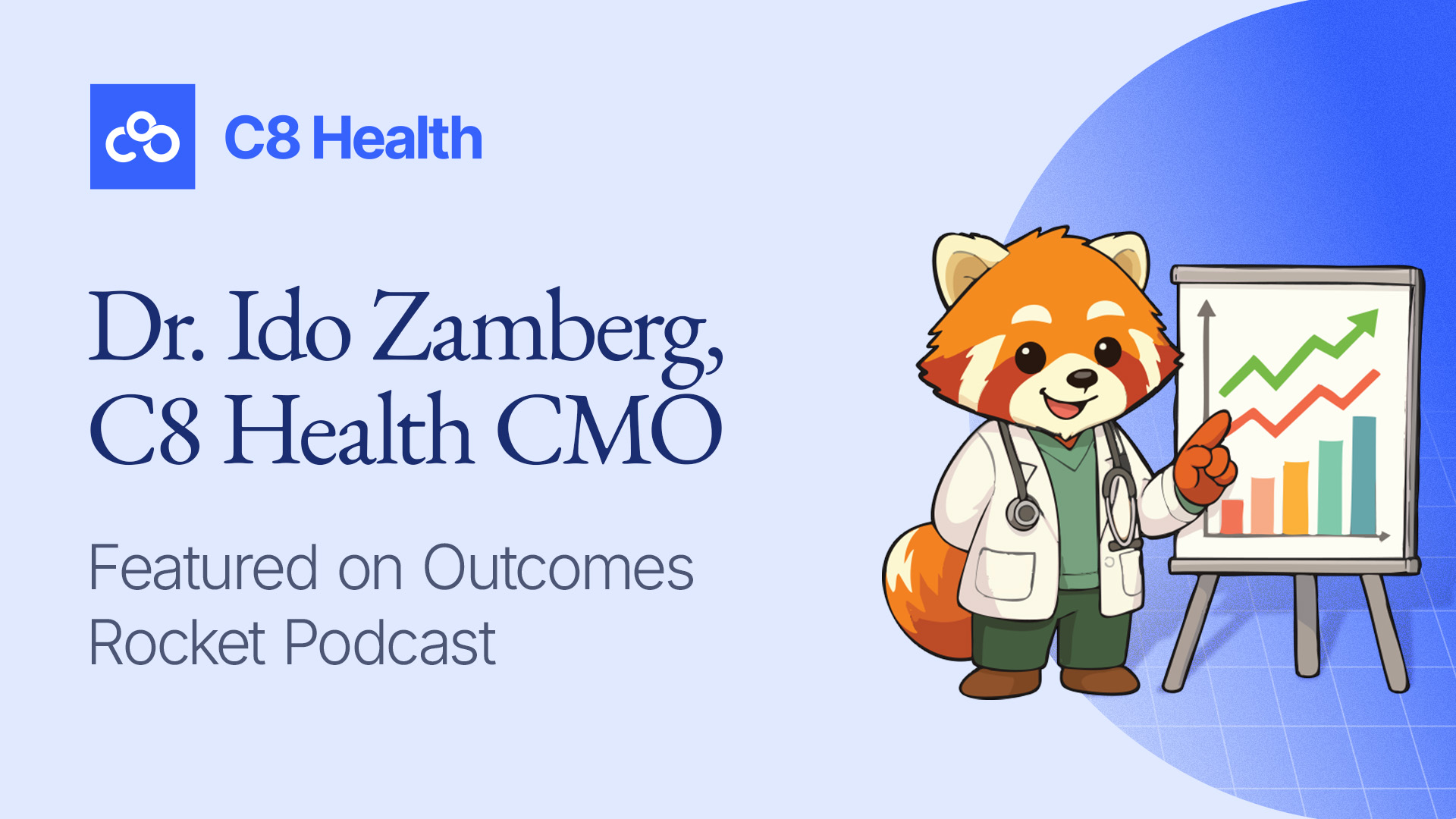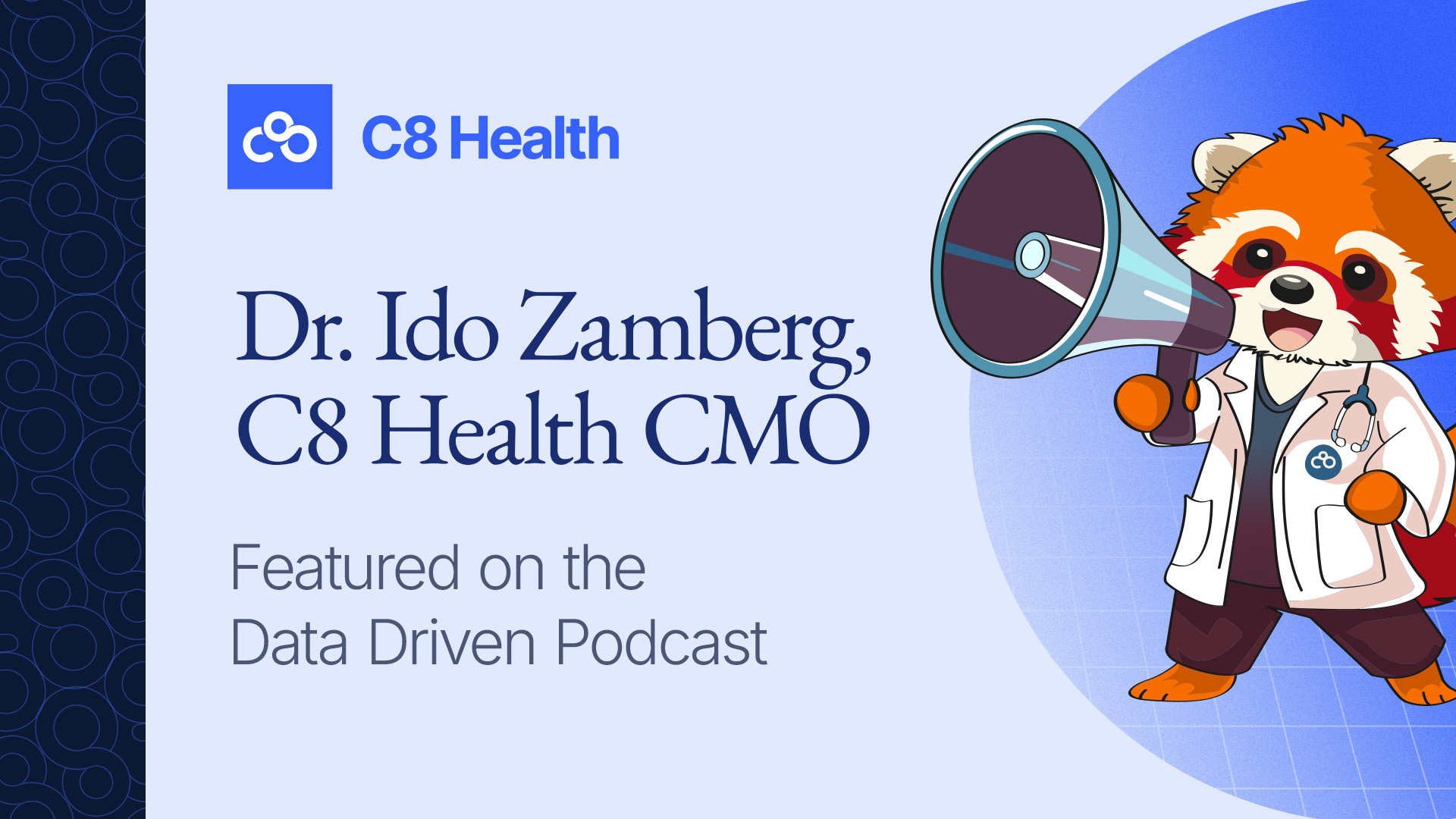The Healthcare Industry is Losing Time, Money, and Lives to Broken Knowledge Management Systems
By Galia Rosen Schwarz, CEO of C8 Health
See Full Bio
Learn about our
Editorial PolicyPublished April 4, 2025.
Hospital clinicians are under unprecedented professional pressure, and the knowledge-work component of their roles is at the heart of the issue. Administrative tasks like EHR management and information retrieval have been identified as the leading cause of stress among physicians, to the point that 75% of burnout symptoms identify them as a source, and 59% of primary care providers say the systems need a complete overhaul.
Before the COVID-19 pandemic, annual physician turnover rates were rising at troubling rates, often attributed to burnout resulting from professional environments that pressure clinicians to do more with less. And while burnout rates have just recently started to improve, administrative burden remains a leading cause. It’s a persistent issue with substantial financial downside: The American Medical Association (AMA) estimates that primary care physician turnover incurs nearly $1 billion in excess healthcare costs annually, with burnout specifically contributing approximately $260 million.
But the costs aren’t just monetary: A 2024 BMJ study found an increased rate of nurse turnover was linked to a greater risk of patient death within 30 days of being admitted to a hospital. A difference of one standard deviation resulted in an additional 35 deaths per 100,000 admissions. The study’s conclusion is clear: “Lower turnover rates for nurses and senior doctors at the hospital level were associated with better health outcomes for patients with emergency hospital admissions.”
To consistently deliver outstanding care and protect patient health, the healthcare industry faces an urgent need for modern, cohesive knowledge management systems that promote wellness in caregivers and help prevent burnout. Fundamental upgrades to the way providers store, search, and share critical resources and guidelines will safeguard the future of healthcare institutions and increase their ability to effectively tend to the health and safety of the patients they serve.
Operational inefficiencies lead to suboptimal care
Delivering personalized care to every patient is the most fundamental aspect of healthcare, but doing so is impossible without an effective knowledge management system. While hospitals invest substantial resources to develop best practices for their teams and support care consistency, their impact is ultimately capped by the efficiency by which that information is accessed. For best practices to be implemented efficiently, they need to be easily found and adapted to the specific point of care. Today, knowledge is siloed between multiple disconnected systems and not integrated into clinical workflows. This makes it difficult to access best practices when clinicians actually need them.
In a recent study, we at C8 Health found that half of medical professionals have witnessed compromised patient care as a result of poor knowledge access, with 13 out of 100 healthcare professionals reporting that limited knowledge access had resulted in negatively impacted patient outcomes. Among healthcare professionals working in critical care units, injury or death was reported in one of three cases.
Burned-out healthcare workers struggle to keep pace
Ineffective knowledge management systems also have an effect on medical professionals’ day-to-day job experience. Doctors and nurses are constantly under pressure to perform as they juggle dozens of cases simultaneously. Not being able to find the locally vetted knowledge or procedural best practices required to deliver care makes it harder for healthcare professionals to do their jobs efficiently. That delay, in turn, prevents patients from getting the support they need.
According to our research, more than half of healthcare professionals have had to work longer hours due to knowledge management failures. In the emergency room, 72 percent of clinicians have had to extend their workdays to the detriment of work-life balance and professional satisfaction. Those overtime hours also inflate payroll costs with healthcare institutions paying an additional $2,770 per employee per year just to look up protocols and guidelines.
To learn more, download our latest report.
Providers can’t provide consistent care without effective collaboration
Consistent care requires clear interdepartmental communication and workflow efficiency. But as medical information crosses various departments, providers, and healthcare institutions, there are countless choke points where data sharing can break down. Without a holistic view of clinical guidelines, clinicians will continue to struggle to diagnose or treat patients using the most recent and effective practices.
Our research shows that more than one-third of professionals in pediatrics, obstetrics and gynecology, and anesthesia and critical care lack official access to guidelines and protocols outside of their immediate departments. Break down these silos, and the benefits become evident. A notable example is a coordinated care program in Boston for end-stage renal disease patients, which saved twice the amount it cost to operate by integrating services across dialysis units, hospitals, and primary care providers.
Compliance risks and cybersecurity threats further obstruct patient care
The harder it is for medical professionals to find the information they need, the more likely they are to turn to external resources that haven’t been vetted or approved. This makes it impossible to standardize patient care, first and foremost. But it can also be dangerous; many clinicians can end up looking up documentation on a complex medical procedure or standard diagnosis, and finding resources that are out of date,inaccurate, and not aligned with their hospital's practices.
It’s a troublingly common occurrence that exposes medical institutions to compliance and cybersecurity risks. The healthcare industry has the second highest cybersecurity attack rate (after the federal government) and healthcare attacks are among the most impactful with 58 percent of devices affected. A single ransomware attack can stymie healthcare institutions for months, and the cost of recovery can be astronomical.
Healthcare knowledge management is overdue for an overhaul
Beyond the everyday inconvenience of searching for clinical resources, broken knowledge management systems are simply dangerous. From major hospital networks to independent doctor’s offices, providers’ ability to offer effective, consistent care is limited by their access to information. All healthcare institutions should take the time to evaluate their systems and reflect on the hidden costs of ineffective knowledge management.
To avoid financial waste, operational inefficiency, and critical medical errors, healthcare institutions must treat cohesive knowledge management as a foundational necessity, not an administrative luxury. Compromising patient safety shouldn’t be an option in today’s healthcare world, and with modern healthcare knowledge management platforms, it doesn’t have to be.




.jpg)
.jpg)
.jpg)